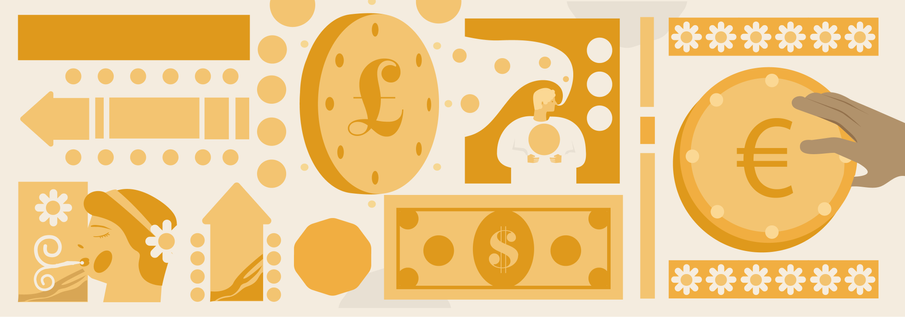From understanding what support you’re entitled to, to knowing your money and mood patterns, we’re sharing advice for managing your money through periods of poor mental health
In a Mind survey of more than 1,000 people, 73% reported that when their mental health is poor, they struggle more to manage their money, and 74% also said that difficulty managing money then went on to affect their mental health.
Financial wellbeing can be a bitter cycle, that can be hard to break out of, and it’s common to feel isolated and anxious during these times.
“Poor mental health can make earning and managing money harder and worrying about money can make your mental health worse. It can start to feel like a vicious cycle,” Kerry McLeod, head of information content at charity Mind, explains.
“Certain situations might trigger feelings of anxiety and panic, like opening envelopes or attending a benefits assessment. You might not be able to afford the things you need to stay well, like housing, food, water, heating, or treatments like medication and therapy. Money problems can affect your social life and relationships too, and they can make you feel lonely or isolated if you can’t afford to do the things you want to.”
But there are supportive options out there, as well as tips and tricks you can try to assess your options and create a plan of action. Here, Kerry shares her suggestions:
1. Make sure you’re claiming any extra money or support you’re entitled to
“For many of us with mental health problems, it can feel like the whole benefits system isn’t designed to meet our needs. But it’s important to know that benefits are there to support you, and you have a right to claim them if you’re struggling to manage or just need that bit extra. Mind’s website has advice and guidance on claiming benefits.”
2. Speak to someone close to you
“Tell someone you trust about the warning signs you might be struggling with your mental health. This could be a loved one or a support worker or health professional like your GP. There are lots of other options for money advice and support services available to you.”
3. Get to know your money and mood patterns
“You might find it helpful to take some time to think about how you feel about money and why. Keeping a diary of your spending and your mood, to record what you spend and why, might be helpful. You could record how you were feeling before and afterwards too. Once you’ve done this, you might start to feel like you understand your habits and patterns around money a bit more. Knowing these could help you plan for difficult times.”
4. Delete apps, don’t save your card details on websites, and give your cards to someone you trust
“When you’re unwell, you might spend more money than you want to or more than you can afford. Overspending can happen for different reasons, such as to make yourself feel better or if you experience symptoms like mania or hypomania. Mind’s website has more suggestions of ways that might help you stop overspending.”
5. Make a list of all the essential things you need to spend money on every month
“This could be things like rent or mortgage payments, energy bills, phone bills, and food shops. While you’re doing this, it might be helpful to put all your important documents in one place so you can find them easily. This could be letters, bank statements, payslips, bills, and receipts. You could also set aside a regular time to think about any tasks you need to do around money, for example paying bills, and plan a relaxing activity for after you’ve finished.”
6. Manage your debts if you can afford to
“You could set up a standing order to pay off your debts each month, or you could use an online debt tool. If you’re struggling to pay off your debts, consider asking for a break from paying interest on your debts. This is possible under a Government scheme called breathing space.”
Kerry highlights that if you've noticed changes in your feelings, thougths, or behaviour that last longer than two weeks, or which keep on returning, this is a sign to talk to someone you trust, your GP, or call Mind Infoline for confidential information and support.
For more information and advice on money and mental health visit mind.org.uk


Comments